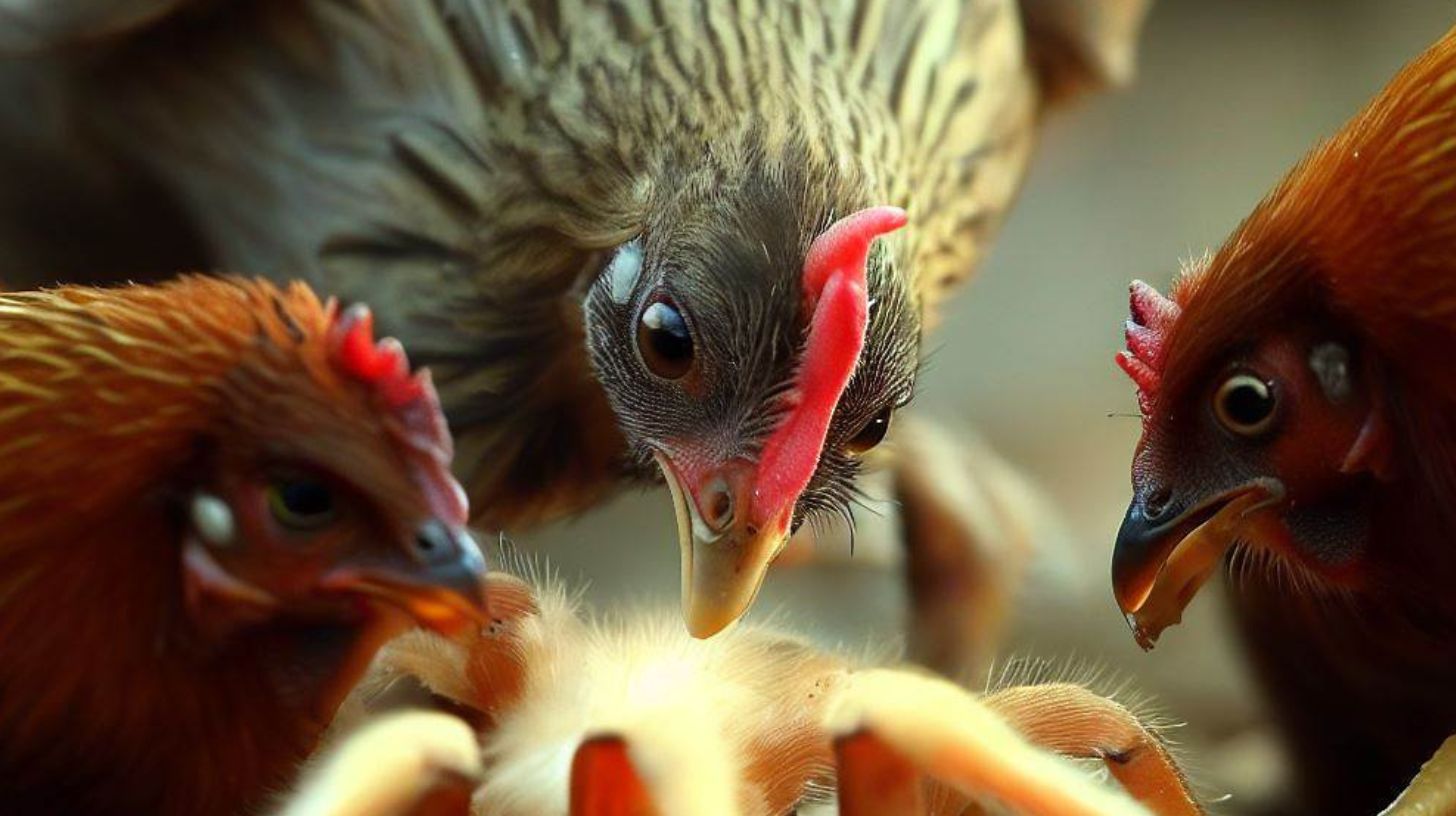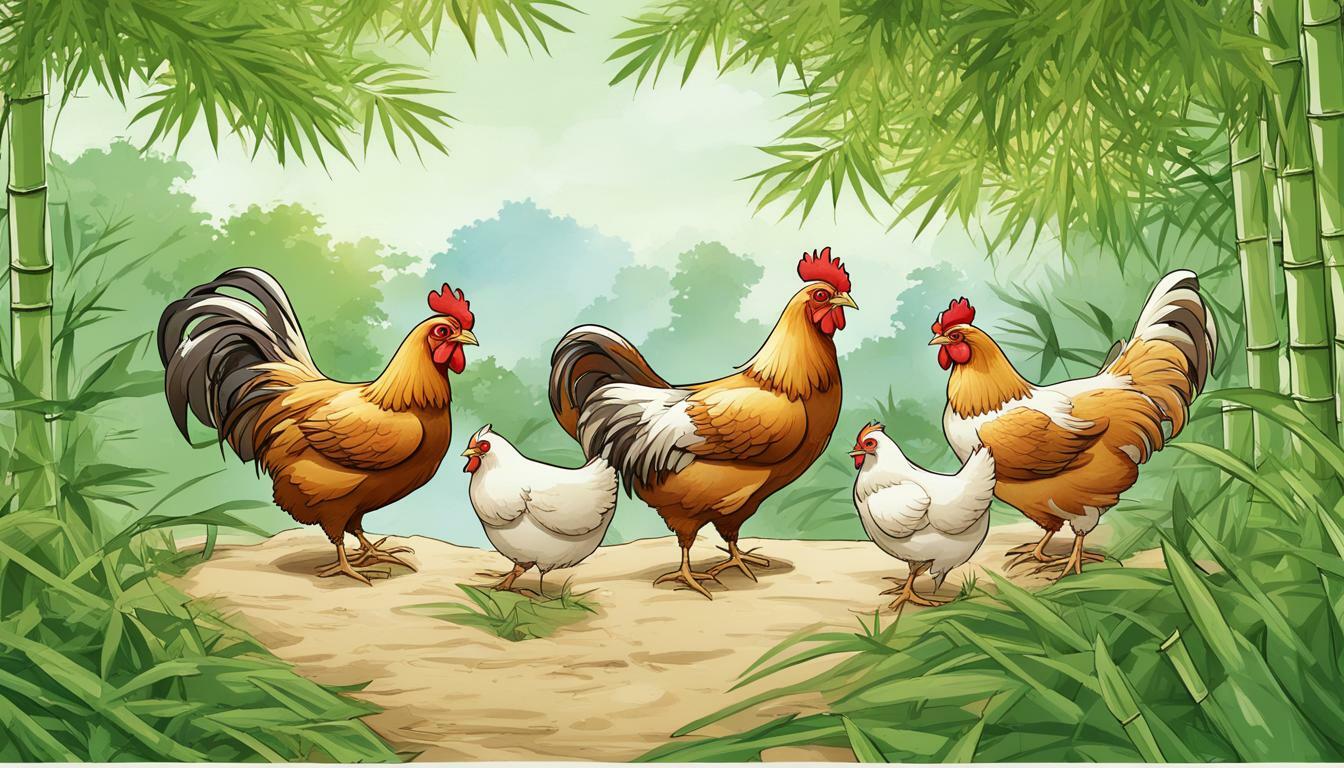Can Chickens Eat Wolf Spiders? Discover the Facts Today

Table of content:
Chickens are omnivores, meaning they enjoy eating both plant-based and animal-based foods. Many backyard chicken keepers wonder if chickens can or should eat insects like wolf spiders. Understanding what chickens can safely consume is important for their health.
Benefits of Feeding Insects to Chickens
Insects can provide a nutritious part of a backyard flock’s diet. Chickens instinctively hunt and consume bugs as a source of protein.
Insects contain amino acids, vitamins, minerals, and fatty acids. Common edible insects for chickens include:
- Crickets
- Mealworms
- Earthworms
- Maggots
- Caterpillars
- Beetles
- Grasshoppers
- Spiders
Studies show chickens fed insect-based diets grow faster and lay more eggs than chickens fed standard feed alone.
Insects are a more sustainable feed source than soy or fish meal. Raising or collecting insects takes fewer resources than traditional livestock farming. Utilizing insects maximizes the benefits of a backyard chicken flock.
Are Wolf Spiders Safe for Chickens to Eat?
Wolf spiders are a common type of arachnid found worldwide. They have robust bodies and prominently large eyes.
Wolf spiders hunt and consume other insects but pose no threat to chickens. In fact, chickens can safely eat these spiders as a nutritious supplement.
Wolf spiders provide protein, vitamin B12, riboflavin, and trace minerals like zinc and copper. Chickens that forage on wolf spiders receive nutritional benefits.
Most spiders are harmless to chickens if ingested. Only a small number of spiders worldwide contain venom toxic to birds. These venomous species are unlikely to populate backyards and pose little risk to foraging chickens.
Do Chickens Actively Hunt Spiders?
While chickens will eat spiders they encounter, they do not actively hunt them. Chickens are omnivores, not true predators.
Chickens use their beaks to scratch through soil and leaf litter searching for seeds and insects. Any spiders uncovered may get eaten incidentally. However, chickens do not pursue spiders or have the instincts to systematically hunt them.
If supplemented with live insects like crickets or mealworms, chickens will energetically chase down these fleeing prey items. Spiders tend to stay hidden and still, so chickens do not recognize them as exciting, movable feast items.
Overall, chickens focus their foraging efforts on more abundant prey like worms, grubs, slugs, and vegetation. Eating the occasional spider provides supplemental nutrition but is not a feeding priority.
Potential Concerns of Feeding Spiders to Chickens
While wolf spiders are safe and beneficial for chickens to eat, there are a few precautions to keep in mind:
Allergies
Some chickens may have rare individual allergies or sensitivities to spider proteins. These reactions are uncommon but should be monitored.
If feeding spiders, start with small amounts and discontinue use if any signs of allergy appear. Symptoms include diarrhea, swelling, and respiratory distress.
Impaction
Consuming whole insects poses a low risk of digestive impaction or blockage. Chewing thoroughly mitigates this. Softer-bodied insects like spiders may slightly increase impaction risk.
Monitor the stool of chickens feasting on spiders. Diarrhea, constipation, or loss of appetite may signal impaction. In this case, restrict spider feeding and provide plenty of insoluble fiber.
Pesticides
Spiders may contain residuals from pesticide applications in yards. While minimal, exposure could accumulate over time.
Washing spiders and harvesting from untreated areas reduces this potential. Still, moderation is wise when offering foraged insects to backyard flocks.
Parasites
Spiders and other invertebrates may harbor microscopic parasites. Proper husbandry and hygiene limits parasitic spread in chicken coops.
Routine flock health checks identify any signs of internal parasites. Currently, no evidence shows spiders uniquely transmit contagious parasites. Regardless, varietal moderation when feeding chickens foraged insects helps avoid over-exposure to parasites.
Best Practices for Feeding Spiders to Chickens
Here are some tips to safely and effectively supplement your flock’s diet with spiders:
- Offer spiders in moderation as a treat, not a dietary staple.
- Introduce new foods slowly, monitoring for any adverse reactions.
- Select spiders from pesticide-free environments whenever possible.
- Wash spiders off to remove any toxic residues from yards.
- Mash, chop or partly crush spiders to prevent potential impaction.
- Feed chickens soon after collecting spiders so they stay lively prey.
- Prioritize softer-bodied spider varieties which are easier to digest.
- Ensure chickens have abundant access to insoluble fiber from other sources.
- Monitor chicken droppings for normal consistency and watch for signs of impaction.
- Perform regular flock health checks for parasites, especially after introducing new feed items.
- Variety is key – rotate different insects to limit any potential anti-nutrient factors.
With proper precautions, spiders can provide a nutritious component of a backyard chicken flock’s diet. Observing your chickens’ preferences and monitoring their health will help determine optimal feeding amounts.
FAQs about Feeding Spiders to Chickens
Chicken keepers considering feeding spiders often have several key questions:
Are wolf spiders high in protein?
Yes, wolf spiders contain excellent levels of highly bioavailable protein. Spiders provide amino acids, making them a supplemental protein source for chickens.
Can too many spiders make chickens sick?
Feeding spiders in extreme excess could cause impaction. Moderation is advised, along with chopping spiders before feeding. Monitor chickens closely when introducing new food items.
Do chickens eat black widows or brown recluses?
While not recommended, chickens may safely eat venomous spiders like black widows in moderation. Very few spider toxins impact chickens. Avoid spiders with bright warning colors signaling toxicity.
Can pet store crickets or mealworms replace spiders?
Commercially available insects provide an easier alternative. Crickets and mealworms contain nutrition levels comparable to spiders. They pose lower impaction risks as well.
How do I collect spiders to feed chickens?
Gently shake foliage or flowerpots to dislodge spiders onto a collecting tray. Avoid using bare hands. Scoop spiders into a container, then wash off pesticides before feeding out.
What if my chickens won’t eat spiders?
It may take time and repetition for chickens to accept novel prey. Try mashing spiders into feed. Consider more palatable insects like mealworms if chickens refuse spiders after several attempts. Monitor to ensure chickens are getting balanced nutrition.
Final Thoughts
Chickens can safely eat wolf spiders in moderation to supplement their commercial feed diet. These creepy crawlers offer protein, vitamins, and minerals. While not a required part of their diet, spiders benefit backyard chickens through added nutrition and enrichment. With proper precautions regarding impactions, allergies, and pesticides, feel comfortable offering foraged spiders to your flock as a healthy treat!
Welcome. I’m Adreena Shanum, the proud owner of this website, and I am incredibly passionate about animals, especially poultry. I founded adreenapets.com as a labor of love, stemming from my desire to share my knowledge and experiences with poultry enthusiasts worldwide.




